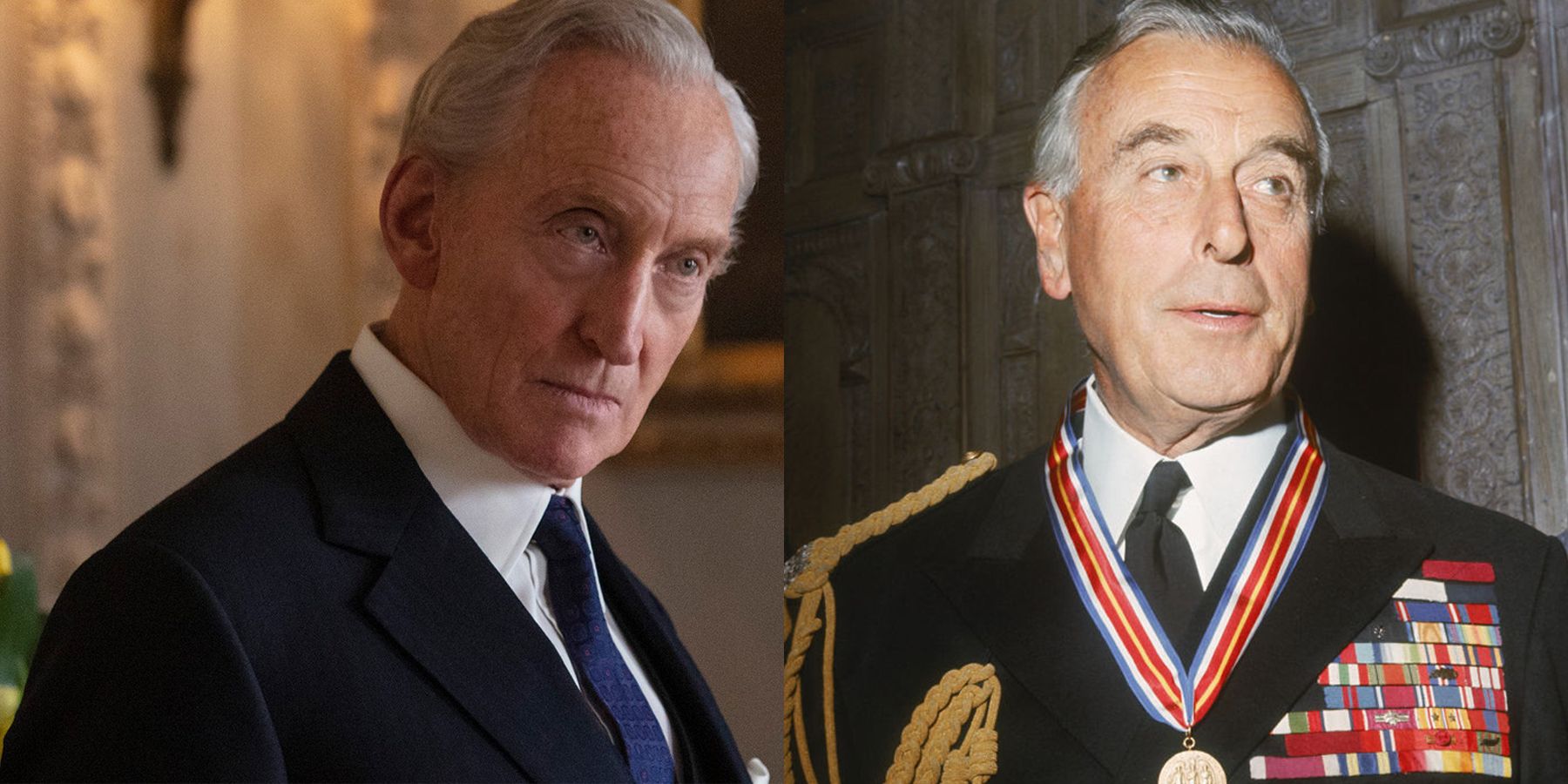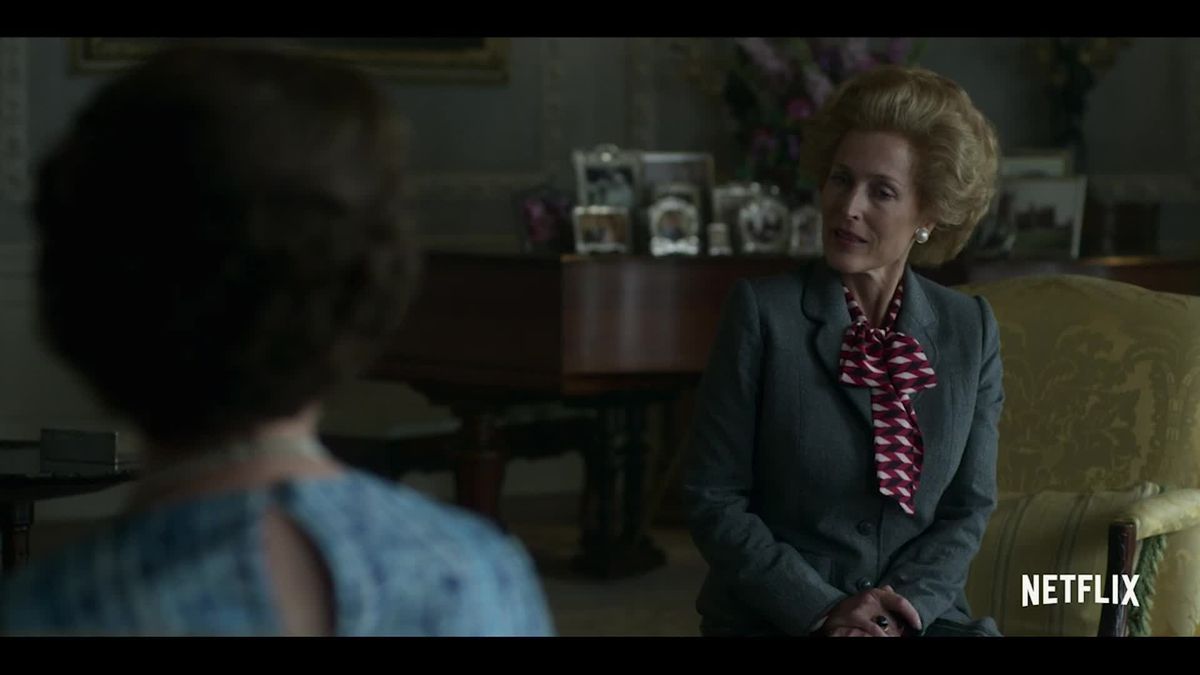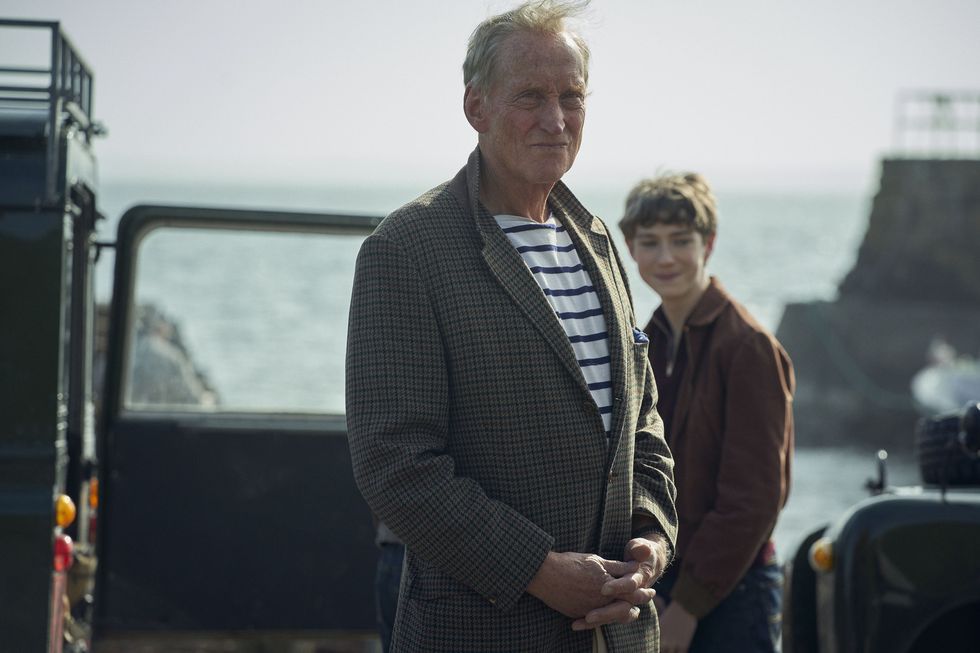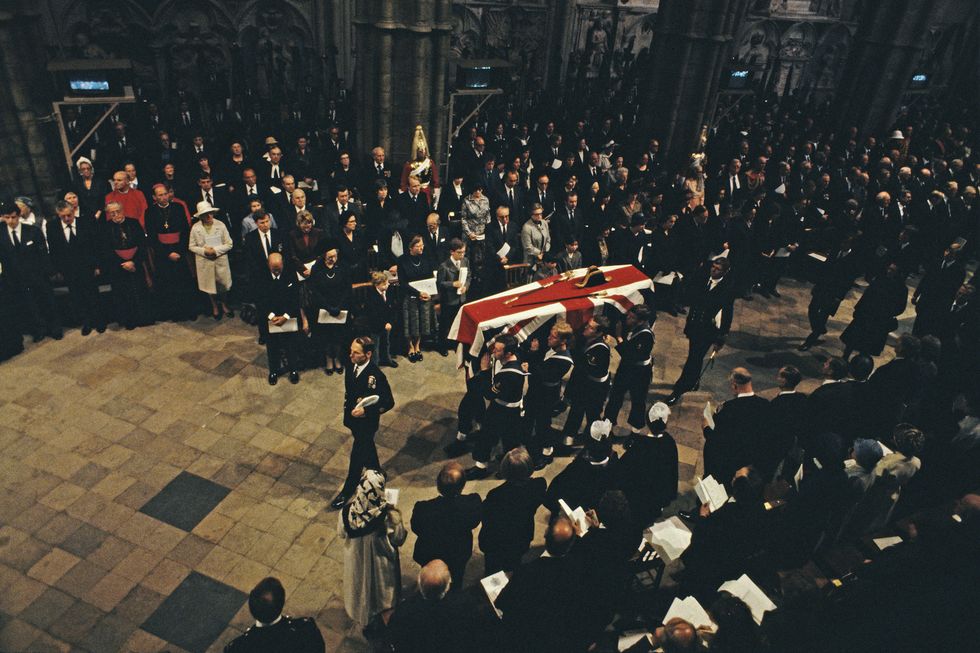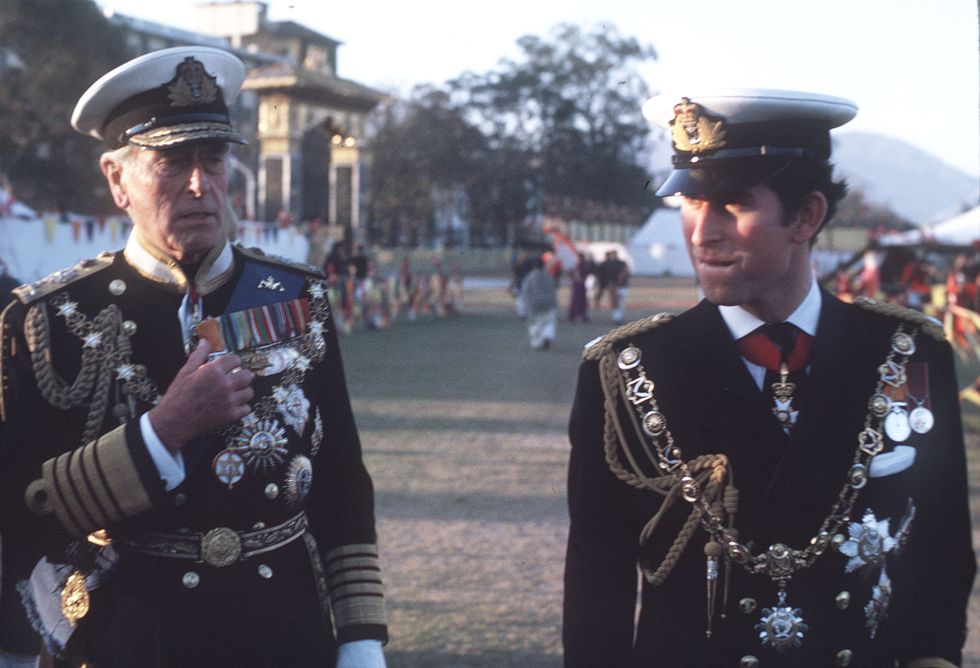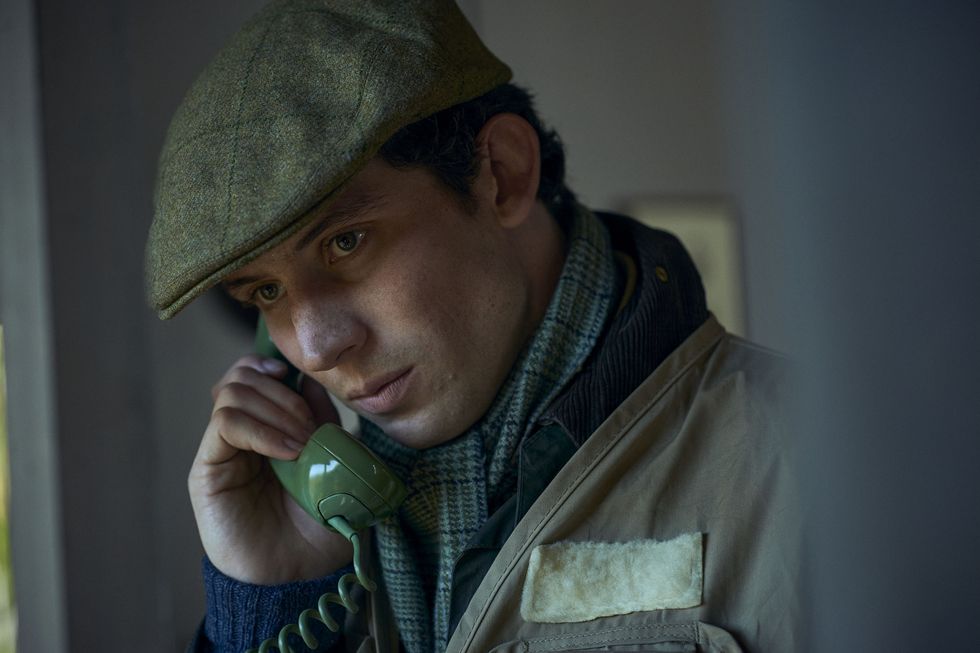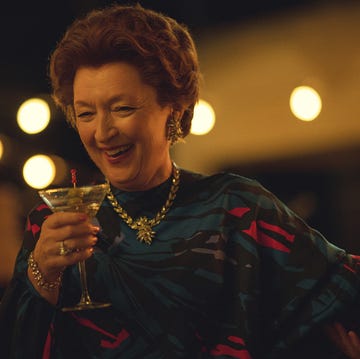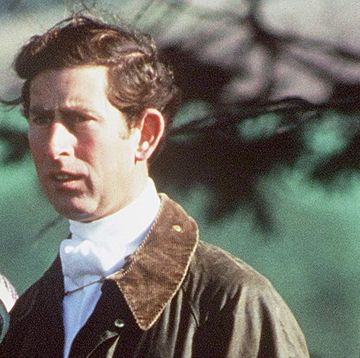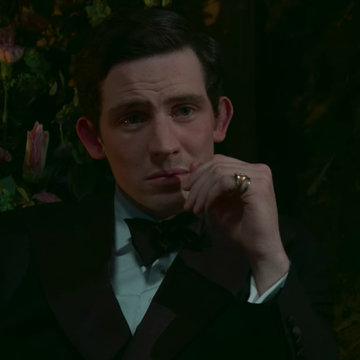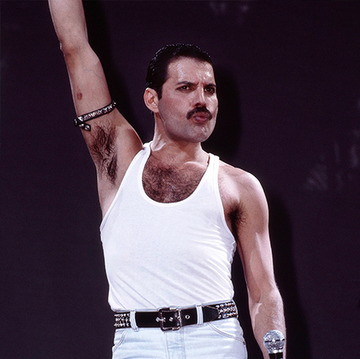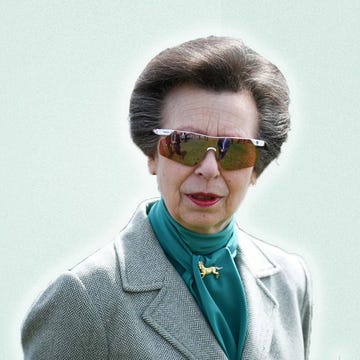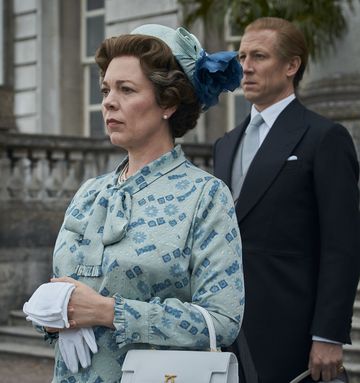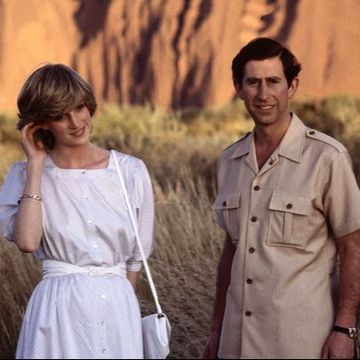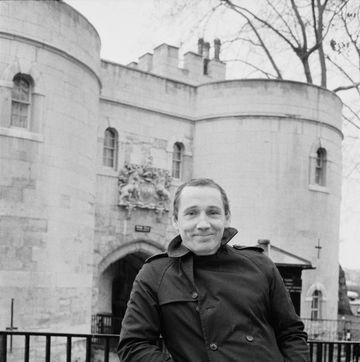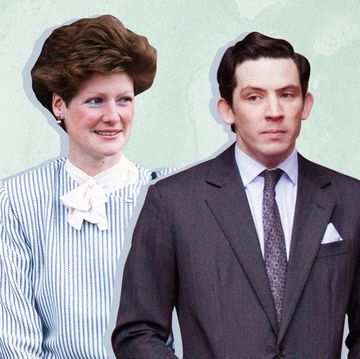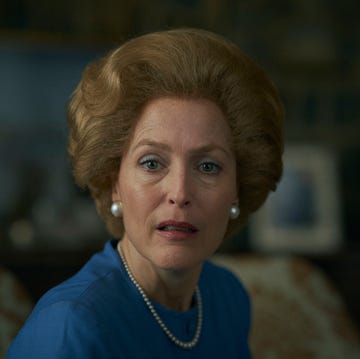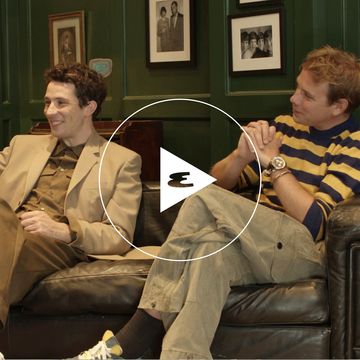*This article contains spoilers for The Crown*
The opening chapter of The Crown's fourth season finds the royal family under siege from the IRA, with the nervous climax of the episode focusing on the assassination of Lord Louis "Dickie" Mountbatten.
The episode recreates the August 1979 day on which Lord Mountbatten took a boat out lobster-potting and tuna fishing with his daughter, son-in-law and two twin grandsons, as well as several other family members and a young crew member. Unbeknownst to the group, IRA member Thomas McMahon had left a radio-controlled bomb on the unguarded boat the previous evening which was then detonated when the ship was out at sea.
The episode cuts between the scene on the boat, Charles fishing alone, Philip shooting on his own and the Queen with a small group deerstalking at Balmoral, before showing us the explosion of Lord Mountbatten's fishing boat in County Sligo, Ireland.
In 'Clear Blue Sky: Surviving the Mountbatten Bomb', a book by Mountbatten's grandson Timothy Knatchbull who survived the blast which killed his twin brother, he recounts the ordinariness of the day on which, "The sun was warm, and the sea flat and calm. We were enjoying ourselves like countless other families that morning. My grandfather was at the helm, looking very content. He was never happier than when mucking about in a boat."
Knatchbull goes on to write that, "A few minutes later Paul, Nick and my grandfather lay dead in the water. A bomb had detonated under their feet. The wooden boat had disintegrated into matchwood which now littered the surface, and a few big chunks which went straight to the seabed."
The IRA swiftly claimed responsibility for the attack as well as for the 18 British soldiers killed after a bomb went off in a coordinated attack 100 miles away. The statement the IRA released noted that: "The death of Mountbatten and the tributes paid to him will be seen in sharp contrast to the apathy of the British Government and the English people to the deaths of over three hundred British soldiers, and the deaths of Irish men, women, and children at the hands of their forces."
Lord Mountbatten was a particularly effective target for the IRA as a member of the royal family who owned a summer home in the Irish seaside village of Classiebawn Castle in Mullaghmore, an estate which the IRA felt amounted to stolen property.
As with much of the history which The Crown turns its focus to, the assassination is grounded in fact but has some colouring between the lines as to how the royal family emotionally responded to the tragic incident in 1979.
Peter Morgan's series highlights the emotional fallout of the incident, which in real life was a dark chapter for the monarchy. In a letter to a friend Prince Philip called his uncle's death a "senseless act of terrorism" while also expressing his hope that the violence of that day would cause the IRA to have a change of heart. Speaking at the funeral, at the request of his great uncle, Prince Charles passionately referred to Lord Mountbatten's killer McMahon as "the kind of subhuman extremist that blows people up when he feels like it."
The killing of Lord Mountbatten represented a pointed attack on the monarchy which continued as the Queen remained a prime target of the IRA. Following the assassination Sinn Féin President Gerry Adams Sinn Féin said that the IRA achieved their objective in that "people started paying attention to what was happening in Ireland." Despite their comments, for many senior figures in the IRA the incident seemed to cross a line in that killing of innocent children on the boat constituted a "war crime", with Irish Times reporter Olivia O'Leary noting that, "Almost everybody spoke with regret and shame about what had happened to Mountbatten".
The dramatisation of Mountbatten's death in The Crown is bookmarked by his penning a letter to Prince Charles warning him of the perilous situation his affection for Camilla Parker-Bowles is putting him in, telling him that he is,"not working hard enough to reach and to rise". Though the letter appears to be fictional, Mountbatten did in fact pen a letter to Charles remonstrating with him for his perceived similarities to Edward VIII after Charles was careless about how his plans would impact the household staff, saying, "you’re becoming just like your great-uncle".
In The Crown, the letter that Charles is given after learning of the death of his "honorary grandfather" is presented to us as a nudge toward him settling down, something we then see play out in his asking out Diana. While it may not have been explicitly put on paper before his death, Lord Mountbatten had long advised Charles of the need to find a suitable partner and sought to stop him from marrying Camilla. As such the letter feels more like a dramatic symbol, but one which is grounded in how Charles's great uncle felt.
The dramatic opening episode sets the tone for this next era of The Crown, one in which Charles's turbulent relationship with Diana sets the royal family on a doomed path. The Troubles and the violence surrounding the IRA also mirrors the unrest that the arrival of Margaret Thatcher brings to the country, setting the stage for the dark times we are walking into.
Like this article? Sign up to our newsletter to get more articles like this delivered straight to your inbox
